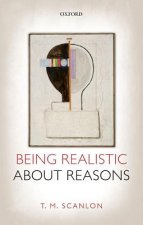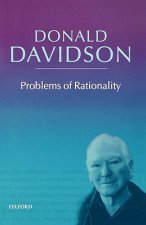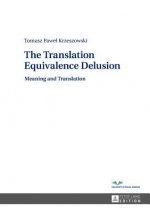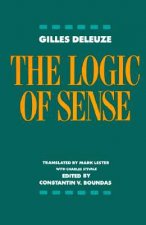
Code: 04866620
Moral Fictionalism
by Mark Eli Kalderon
Moral realists maintain that morality has a distinctive subject matter. Specifically, realists maintain that moral discourse is representational, that moral sentences express moral propositions - propositions that attribute moral ... more
- Language:
 English
English - Binding: Paperback
- Number of pages: 206
Publisher: Oxford University Press, 2007
- More about this

You might also like
-

Amazons, Savages, and Machiavels
88 € -

Dot-to-Dot Animals
5.98 € -18 % -

Fashioning Models
50.98 € -

Rosario+Vampire: Season II, Vol. 7
7.97 € -18 % -

Family Camping Cookbook
11.86 € -26 % -

Language and Politics of Exclusion
100.77 € -

Measuring College Learning Responsibly
25.14 € -11 %
Give this book as a present today
- Order book and choose Gift Order.
- We will send you book gift voucher at once. You can give it out to anyone.
- Book will be send to donee, nothing more to care about.
More about Moral Fictionalism
You get 158 loyalty points
 Book synopsis
Book synopsis
Moral realists maintain that morality has a distinctive subject matter. Specifically, realists maintain that moral discourse is representational, that moral sentences express moral propositions - propositions that attribute moral properties to things. Non-cognitivists, in contrast, maintain that the realist imagery associated with morality is a fiction, a reification of our non-cognitive attitudes. The thought that there is a distinctively moral subject matter is regarded as something to be debunked by philosophical reflection on the way moral discourse mediates and makes public our noncognitive attitudes. The realist fiction might be understood as a philosophical misconception of a discourse that is not fundamentally representational but whose intent is rather practical. There is, however, another way to understand the realist fiction. Perhaps the subject matter of morality is a fiction that stands in no need of debunking, but is rather the means by which our attitudes are conveyed. Perhaps moral sentences express moral propositions, just as the realist maintains, but in accepting a moral sentence competent speakers do not believe the moral proposition expressed but rather adopt the relevant non-cognitive attitudes. Non-cognitivism, in its primary sense, is a claim about moral acceptance: the acceptance of a moral sentence is not moral belief but is some other attitude. Standardly, non-cognitivism has been linked to non-factualism - the claim that the content of a moral sentence does not consist in its expressing a moral proposition. Indeed, the terms 'non-cognitivism' and 'non-factualism' have been used interchangeably. But this misses an important possibility, since moral content may be representational but the acceptance of moral sentences might not be belief in the moral proposition expressed. This possibility constitutes a novel form of non-cognitivism, moral fictionalism. Whereas non-factualists seek to debunk the realist fiction of a moral subject matter, the moral fictionalist claims that that fiction stands in no need of debunking but is the means by which the non-cognitive attitudes involved in moral acceptance are conveyed by moral utterance. Moral fictionalism is non-cognitivism without a non-representational semantics.
 Book details
Book details
Book category Books in English Language linguistics Philosophy of language
62.45 €
- Full title: Moral Fictionalism
- Author: Mark Eli Kalderon
- Language:
 English
English - Binding: Paperback
- Number of pages: 206
- EAN: 9780199228041
- ISBN: 0199228043
- ID: 04866620
- Publisher: Oxford University Press
- Weight: 249 g
- Dimensions: 200 × 140 × 20 mm
- Date of publishing: 23. August 2007
Trending among others
-

Metasemantics
121.83 € -

Language Instinct
14.76 € -13 % -

Trivium
19.35 € -2 % -

Construction of Social Reality
13.16 € -28 % -

Practice Makes Perfect English Pronouns and Prepositions, Second Edition
15.66 € -12 % -

Being Realistic about Reasons
29.33 € -

Rosicrucian Manual
13.56 € -

Essential Chomsky
21.94 € -21 % -

Making the Social World
13.16 € -19 % -

Image Music Text
12.36 € -12 % -

Inquiry into Modes of Existence
33.72 € -9 % -

How Language Works
13.16 € -28 % -

Practice Makes Perfect English Articles and Determiners Up Close
13.06 € -18 % -

What Kind of Creatures Are We?
14.26 € -10 % -

Philosophy of Language
36.81 € -17 % -

Making It Explicit
53.57 € -4 % -

Introduction to Cognitive Linguistics
63.85 € -

Language Hoax
14.46 € -14 % -

Philosophy of Language
25.63 € -6 % -

More than Cool Reason
32.22 € -

On Nature and Language
51.28 € -

Decoding Chomsky
11.46 € -47 % -

Naming and Necessity
26.43 € -26 % -

Semiotics and the Philosophy of Language
24.94 € -

Latin
30.92 € -

Authority of Law
53.67 € -

Problems of Rationality
59.56 € -

Inferentialism
145.17 € -

Process Philosophy of Signs
30.52 € -

Constructing the World
91.19 € -

Translation Equivalence Delusion
95.58 € -

Logic of Sense
20.84 € -24 % -

Philosophy of Language
53.07 € -

Theories of Lexical Semantics
59.46 € -

How to Do Things with Words
53.07 € -

Critical Introduction to the Philosophy of Language
55.87 € -

Ascent of Babel
86.90 € -

From Hand to Mouth
43.30 € -

Mental Corpus
57.37 € -

Ontology after Carnap
104.36 € -

Philosophy of Poetry
109.65 € -

Practice Makes Perfect English Verb Tenses Up Close
16.65 € -20 % -

Language Animal
32.82 € -7 % -

Metaphor
46.39 € -

Science of Language
31.42 € -

In Contradiction
78.12 € -

Chinese Language
44.69 € -

Existence and Explanation
176.01 € -

Reflective Equilibrium and the Principles of Logical Analysis
210.43 €
Collection points Bratislava a 2642 dalších
Copyright ©2008-24 najlacnejsie-knihy.sk All rights reservedPrivacyCookies



 15549 collection points
15549 collection points Delivery 2.99 €
Delivery 2.99 € 02/210 210 99 (8-15.30h)
02/210 210 99 (8-15.30h)